Republican debate: Winners and losers
- Published
- comments
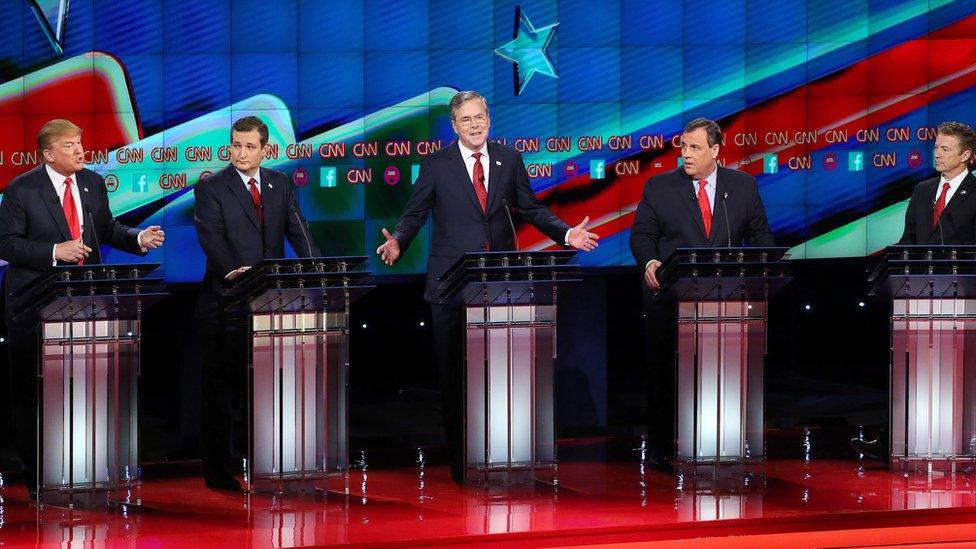
Coming just over a week after the shootings in San Bernardino and a month after the Paris attacks, it was no surprise that Tuesday night's Republican debate was focused almost entirely on foreign policy.
What was surprising, however, was how few candidates tried to lay a hand on front-runner Donald Trump.
There was plenty of heat in this fifth Republican debate, but very little of it involved the New York businessman who claims leads in almost every recent presidential preference poll.
Here's how the night's biggest battles shaped up - and the winners and losers. But before we get to that, let's talk about the fight that didn't happen.

Trump's Muslim border ban
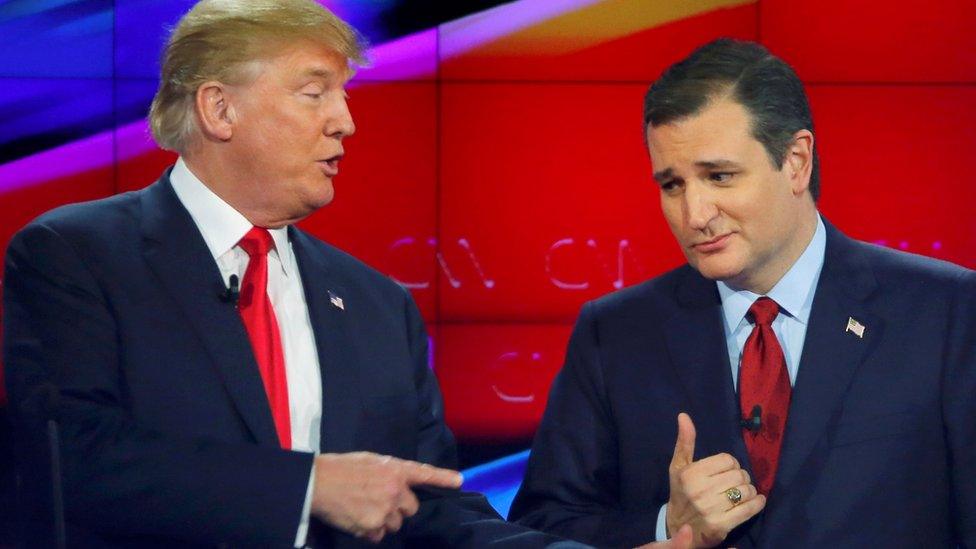
It seems stunning that just over a week ago Mr Trump made international headlines with his call to close the US border to all Muslim immigrants and visitors.
Although the subject was raised early on, and Mr Trump stood by his position, it received only tepid condemnation.
"This is not a serious proposal," former Florida Governor Jeb Bush said.
Senators Marco Rubio and Ted Cruz both added that they could understand why some Americans support Mr Trump's idea.
And that, essentially, was that.
The topic didn't come up again, and it seemed Mr Trump's opponents were more outraged by his views on "closing off" part of the internet to deter the so-called Islamic State, which Senator Rand Paul said ran counter to First Amendment free speech rights.
Winner: Mr Trump, of course. With his fellow candidates dancing around the proposed ban, the New York businessman paid no political price for his views. His supporters largely love him for taking what they see as a bold stance, but the party as a whole could end up losing as it becomes associated with a policy that is opposed by a majority of Americans.

Jeb's backbone
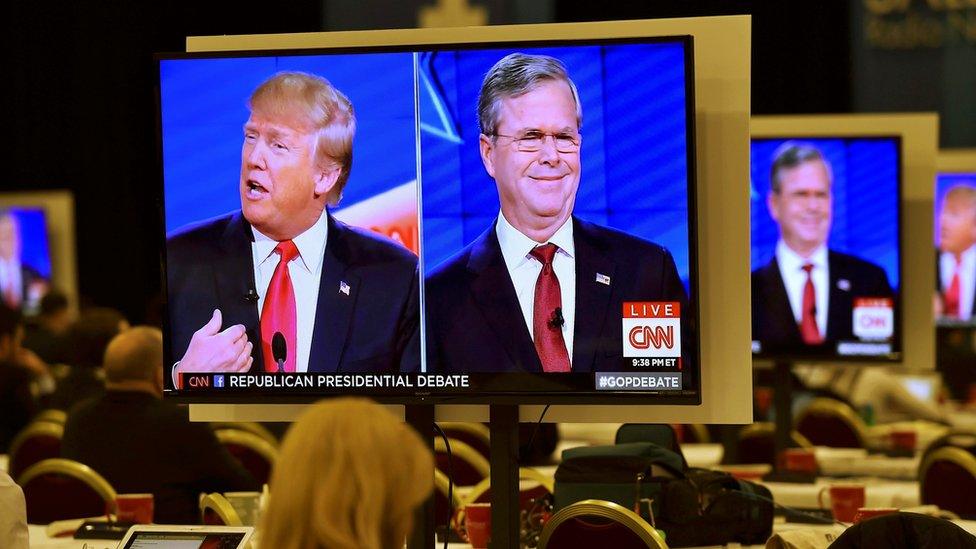
Mr Bush was the only candidate who tried a head-on charge against Mr Trump, although the exchanges often sounded more like childish squabbles than serious differences of opinions.
"I know you're trying to build up your energy, Jeb, but it's not working very well," Mr Trump said.
"You're not going to be able to insult your way to the presidency," Mr Bush retorted. "Leadership is not about attacking people and disparaging people."
Mr Trump shot back with a quip about Mr Bush's poll standings and how he was slowly moving farther and farther from the centre of the stage.
"I know you are, but what am I" was the only rhetorical device seemingly left in the bag.
Winner: Mr Bush definitely baited Mr Trump into losing his temper, and the former governor held his own in the ensuing exchanges. "A little taste of your own medicine," Mr Bush said at one point. If this fight had come a few months earlier, Mr Bush might have more of a pulse in this race. As it is, however, he was the winner - but with a victory that will likely prove hollow.

Rubio v Cruz
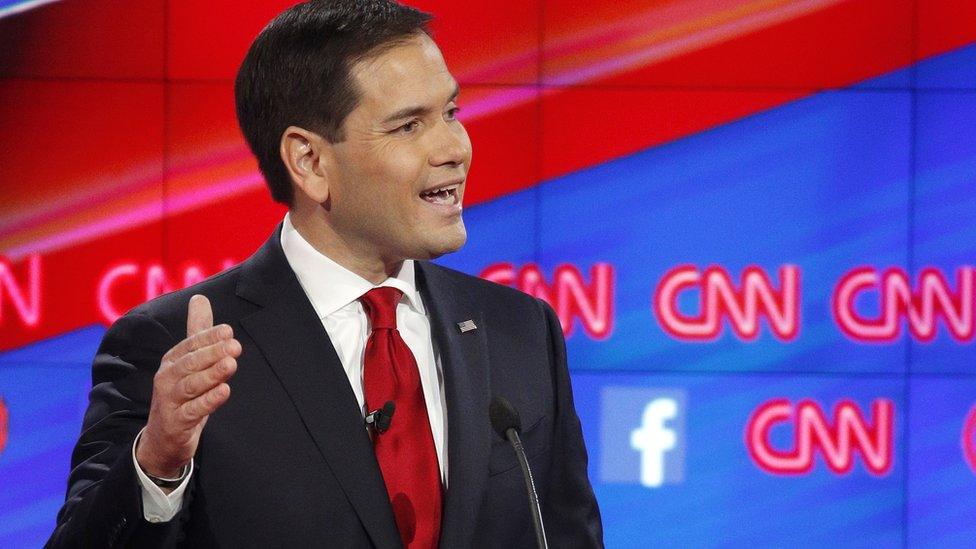
One expected fight that did materialise was between the two first-year senators who are increasingly being seen as the men most likely to eventually surpass Mr Trump.
Mr Cruz and Mr Rubio clashed throughout the evening, each trying to fight on terrain they view as more advantageous.
Mr Rubio struck first, criticising Mr Cruz for voting to curtail US surveillance powers.
"The next time there is attack on this country, the first thing people are going to want to know is, why didn't we know about it and why didn't we stop it?" Rubio said. "And the answer better not be because we didn't have access to records or information that would have allowed us to identify these killers before they attacked."
When the topic turned to immigration, however, it was Mr Cruz who went on the offensive, accusing Mr Rubio of backing amnesty for undocumented immigrants in the US.
"There was a time for choosing," Mr Cruz said. "Where there was a battle over amnesty, some chose, like Senator Rubio, to stand with Barack Obama and [Democratic Senator] Chuck Schumer and support a massive amnesty plan."
Winner: Both senators are gifted debaters and held their own. If Mr Cruz edged ahead in the exchanges, it was only because the next person to speak in both case was someone more closely aligned with the Texas senator's positions - Senator Rand Paul on surveillance and Mr Trump on immigration. They had the last word, and it was to Mr Rubio's detriment.

Shooting Russian planes
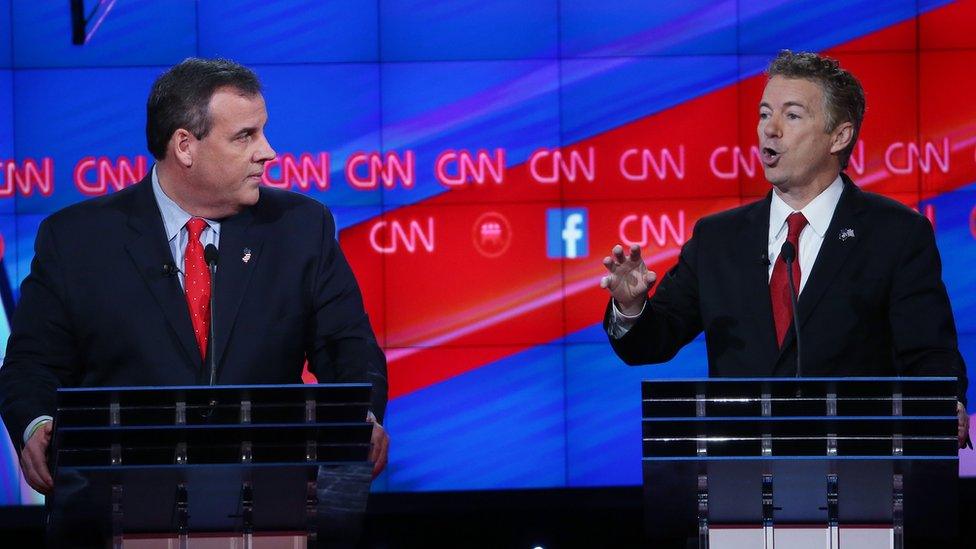
One of the more interesting fights of the evening came between New Jersey Governor Chris Christie and Mr Paul, representing the hawkish and non-interventionist wings of their party respectively.
When the topic of US involvement in Syria came up, Mr Christie - brandishing his tough-talking credentials - took an aggressive position on enforcing a no-fly zone in Syria, even when it came to Russia.
"We would shoot down the planes of Russian pilots if in fact they were stupid enough to think that this president was the same feckless weakling that the president we have in the Oval Office is right now," he said.
Mr Paul responded that if Americans wanted someone who would start World War III, "you have your candidate".
"What we want in a leader is someone with judgement, not someone who is so reckless," he said.
Winner: Although Mr Paul has recently been more outspoken in calling for foreign policy restraint, Mr Christie's views likely jibe more closely to Republican primary voters. The exchange gave him a chance to boast that, as a governor and former prosecutor, he was a man of action - unlike his senate counterparts, who are all talk. Advantage, Mr Christie.